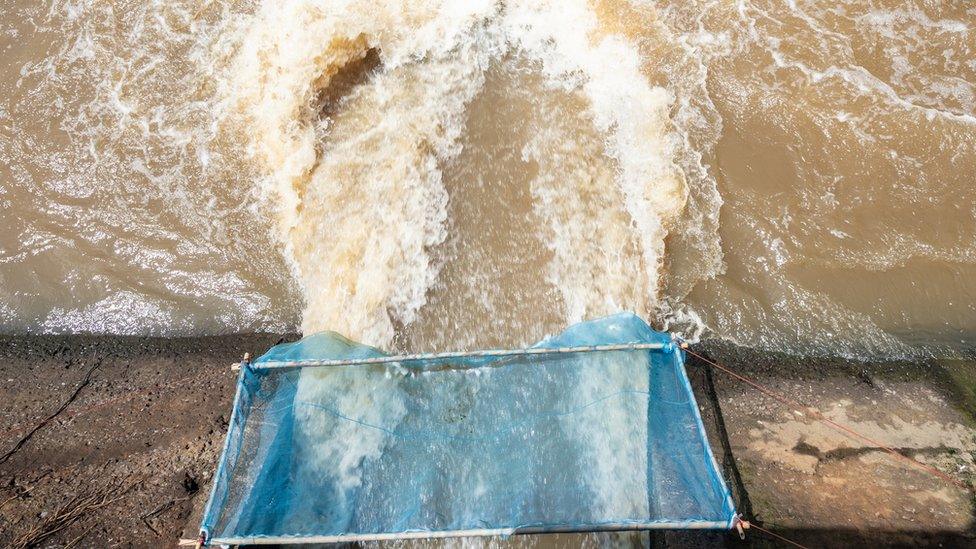Raw sewage discharged in Thames again after Storm Ciarán
- Published
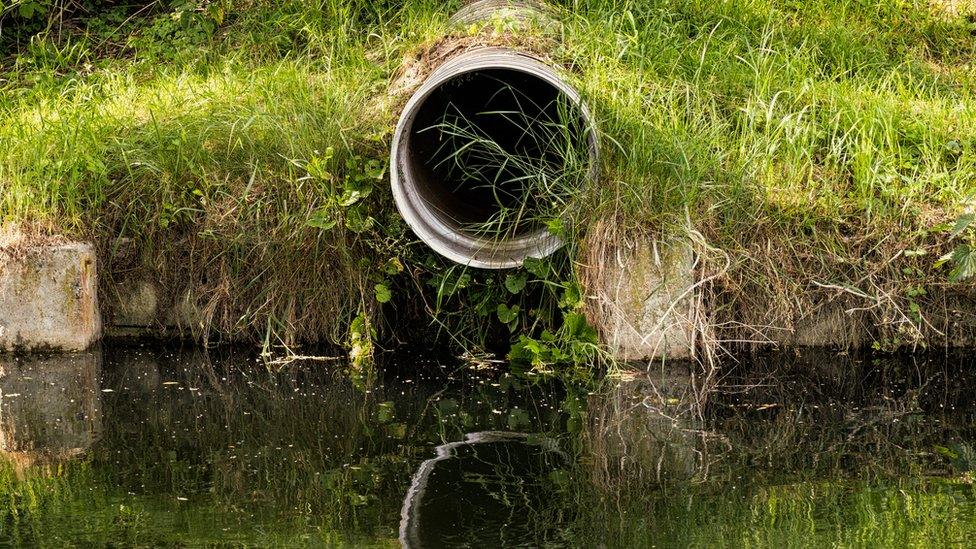
Thames Water has said putting sewage into rivers is "unacceptable" but necessary after heavy rain
Sewage has been discharged in Oxfordshire's rivers once more following Storm Ciarán's heavy rain.
Thames Water confirmed that "overflows" were "currently discharging" into the River Thames because of the effects of the storm.
Its storm overflow map, external indicates multiple areas in the county where those overflows are taking place.
The water company said this prevented sewers flooding homes, gardens, and streets.
It said: "At times of heavy or continued rainfall, the sewer system can't always cope with the extra volume."
It described storm overflows as a "safety valve" which diverted rainwater and foul water into watercourses.
"Although it does contain some untreated sewage, storm discharge is heavily diluted because it's mostly rainwater," it added.
The BBC has been contacted by residents appalled by the appearance of raw sewage in the Thames in recent days.
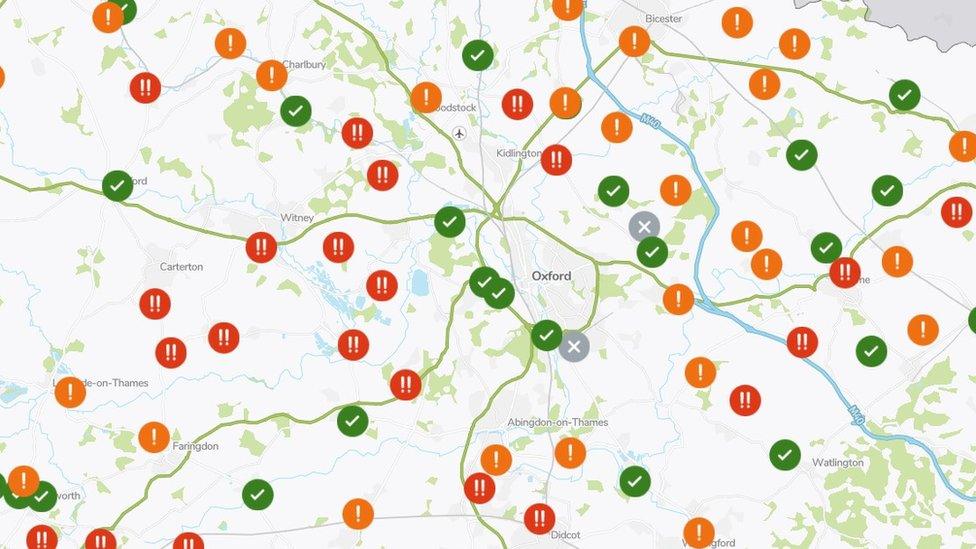
Exclamation marks in red indicate where sewage could be flowing into the watercourses
A Thames Water spokesperson said all discharges were "unacceptable" and that the company was planning to upgrade more than 250 of its sewage treatment works and sewers.
Claire Robertson, Oxford Rivers project officer at Thames21, said: "Our rivers are under siege from pollution, with hours of raw sewage discharges and run-off from roads and farmers' fields.
"Unfortunately these pollution incidents don't only occur during storms, but also year round, with the average sewage treatment works in upstream of Oxford discharging raw sewage for 500 hours a year."
She said more funding for the Environment Agency, stricter regulation, and "heavier penalties for water companies polluting and failing to upgrade infrastructure," was required.
Strict permits
Thames Water is the main supplier across Berkshire and Oxfordshire.
In July its shareholders agreed to £750m of equity funding, external. It is holding a virtual meeting, external in November where residents can ask about its five-year business plan, external.
It is also about £14bn in debt, according to figures released in June.
An Environment Agency spokesperson said: "Discharges from storm overflows may occur more frequently during times of heavy rain, however, there are strict permit conditions for when and how they should be used to protect our environment."
They added: "If we identify illegal discharges we will investigate and take action.
"Since 2015, the Environment Agency has concluded 65 prosecutions, securing record fines of over £150 million against water companies."

Follow BBC South on Facebook, external, X, external, or Instagram, external. Send your story ideas to south.newsonline@bbc.co.uk, external.
Related topics
- Published3 November 2023
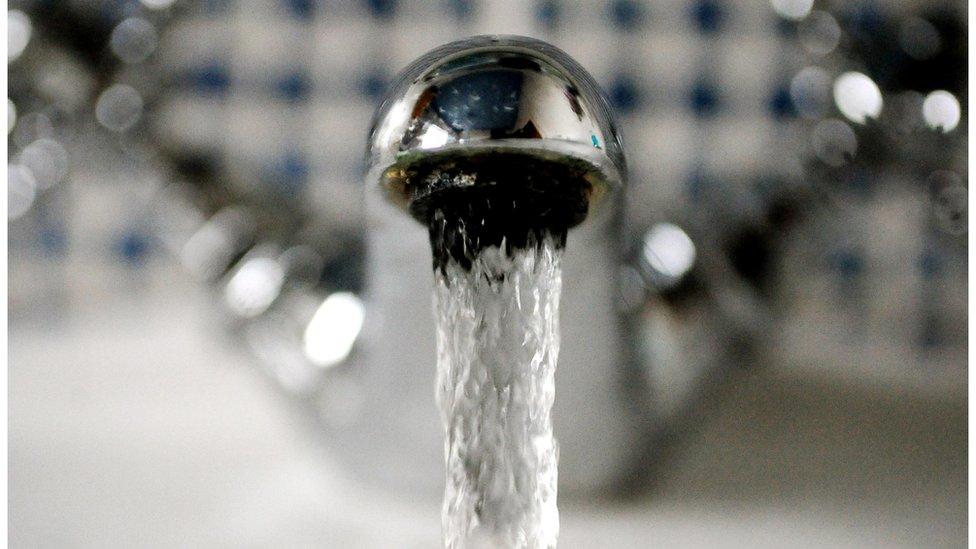
- Published12 October 2023

- Published29 June 2023
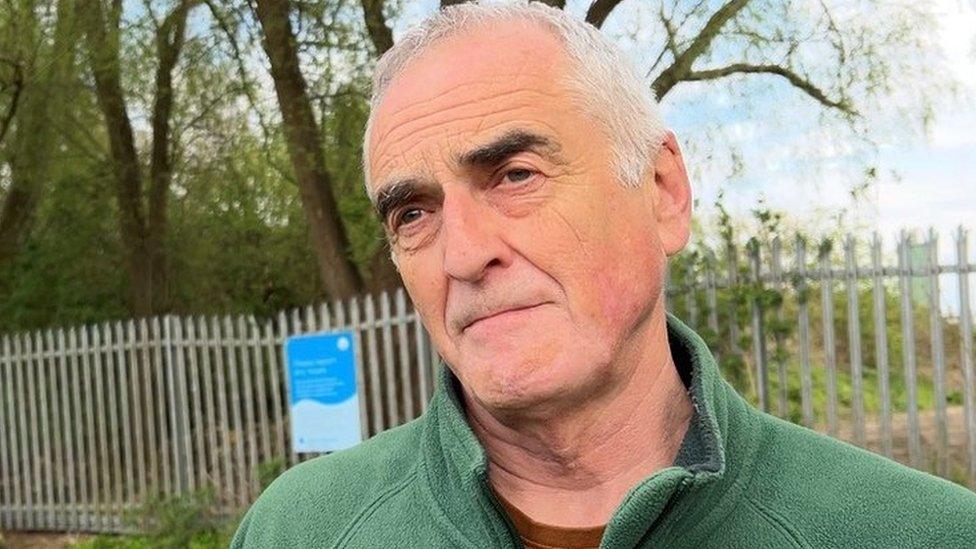
- Published29 December 2022
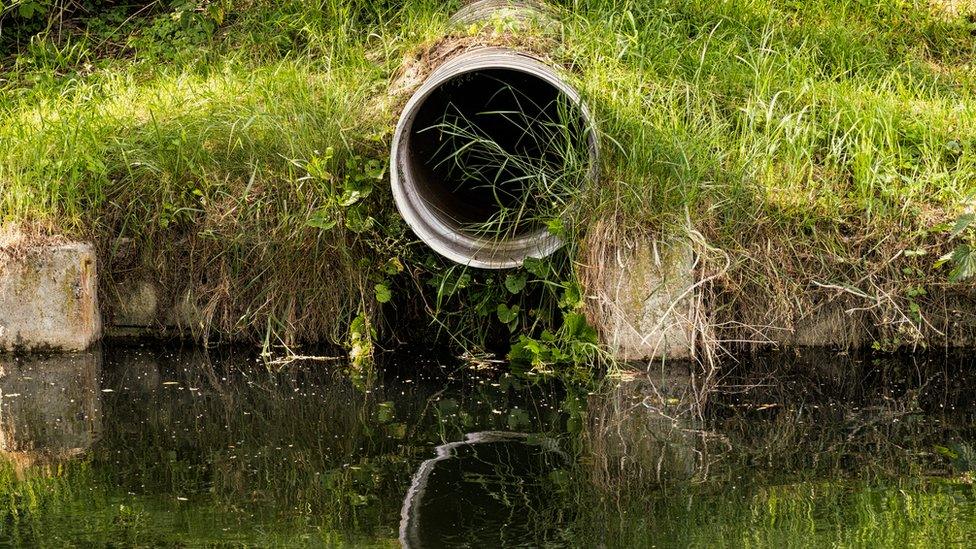
- Published27 December 2022
